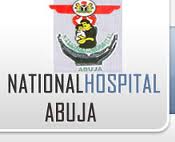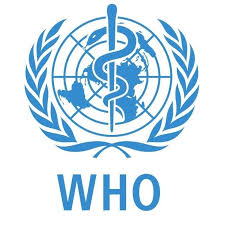Though hypertension is one of the deadliest health conditions in the world, not many people monitor their blood pressure level.
Should there be a need to ask, very few people would be able to reel out their blood pressure numbers in cases of emergencies.
Doctors note that more than ever, every adult above the age of 21 and between the ages 30 and 40 must know there blood pressure level, either high or low, to reduce their risks of developing stroke, kidney failure and heart diseases.
Consultant Cardiologist, Dr. Segun Akinsanya, likens one not knowing his/her blood pressure to ‘sitting on a bomb comfortably;’ and warns that such nonchalant attitude to matters of health could lead to sudden death in such individuals.
Akinsanya notes that evidence shows that lifestyle choices such as smoking, poor diet, heavy alcohol consumption and lack of exercise are factors that predispose to high blood pressure; but knowing that one has this condition would help such individuals to make informed lifestyle choices to save their lives.
He adds that Africans especially, who are more prone to developing high blood pressure and hypertension, should be more concerned and take appropriate steps to prevent and manage high blood pressure.
Akinsanya warns that a major reason why one should be more vigilant and also monitor one’s high blood pressure is its strong link to kidney and heart failure.
“High blood pressure is the number one cause of heart diseases and cardiovascular deaths. Heart disease is the number one cause of death globally: more people die annually from it than from any other disease in the world. One in every three deaths is from hypertensive heart disease.
“High blood pressure weakens the heart and reduces its functions. It is a deadly condition when it is not managed. It can lead to sudden death and kidney failure. In fact, it is the first cause of organ failure.
“The good news, however, is that it can be managed and controlled for many decades with drugs and lifestyle changes, if only you know that you have it. But we must know that our wellbeing is in our hands. You don’t control what you don’t know. You don’t prevent what you don’t see as a danger to your health and in this case, life,” Akinsanya notes.
It is not just organ failure; experts also attribute the increasing population of Nigerians developing stroke to the growing cases of undiagnosed, unmanaged hypertension (high blood pressure) and diabetes.
Consultant Neurosurgeon and stroke care specialist, Dr. Biodun Ogungbo, says about 40 per cent of Nigerians are living with factors that could predispose them to developing stroke. These factors include high blood pressure, high blood sugar levels, smoking, alcohol consumption and obesity
He warns that more young people in their 30s, 40s and 50s are developing and dying of stroke due to the increasing population of hypertensive and diabetic patients.
Ogungbo notes that stroke, a preventable disease, occurs when there is either too much blood in the brain (wet stroke) or when no blood is going into the brain (dry stroke); and it is usually due to unmanaged and undetected hypertension.
“The incidence of hypertension is high in Nigeria. Almost half of patients I see for the first time in the clinic for other problems, such as back pain, have high blood pressure.
“Hypertension is common in black people. We do not know why. It is therefore common in Nigerians and some statistics say over 40 per cent of adults in Nigeria have hypertension.
“Unfortunately, for some reasons, younger people are becoming hypertensive and suffering the consequences and also increasing the incidence of stroke and heart failure in people in their productive years.”
Ogungbo says stroke, which could result in loss of speech, paralysis, urinary incontinence, mental disability, physical disability, blindness, loss of body movement and even death in most cases, can be prevented by simply preventing or managing high blood pressure.
The neurologist says there is the need for urgent awareness, especially among Africans, on the fact that stroke can be prevented if hypertension or high blood pressure is detected early.
“Anyone with a pressure consistently above normal has high blood pressure. The cut-off is pressure above 140/90 mmHg. It does not give any warning and usually no one knows if their pressure is high or not until they do a test. By the time you have definite symptoms such as headaches, organs such as the heart, brain and kidneys may have been damaged.”
To prevent high blood pressure, Ogungbo advises that one must monitor his/her blood pressure, and to also adopt a healthy lifestyle that prevents obesity.
Ogungbo says, “We must take exercise more seriously to shed calories. Fat forms layers in the blood vessels and causes them to become narrow. This increases the work of the heart in pumping blood through the vessels, leading to high blood pressure.
“Eat plenty fruits and vegetables. Do not smoke. Avoid alcohol. Lose weight. That 20-minute walk or exercise daily may just save your life.”
“If you need medication for blood pressure control, please use it and do not stop because someone tells you to. Hypertension is for life and does not go away. It cannot be cured but can be managed and controlled.”
ABUJA: Training Schedule for Basic Life Support BLS, Pediatric Advanced Life Support (PALS), Advanced Cardiovascular Life Support ACLS, First Aid, CPR, AED
PORTHARCOURT: Training Schedule for Basic Life Support BLS, Pediatric Advanced Life Support (PALS), Advanced Cardiovascular Life Support ACLS, First Aid, CPR, AED
LAGOS: Training Schedule for Basic Life Support BLS, Pediatric Advanced Life Support (PALS), Advanced Cardiovascular Life Support ACLS, First Aid, CPR, AED




